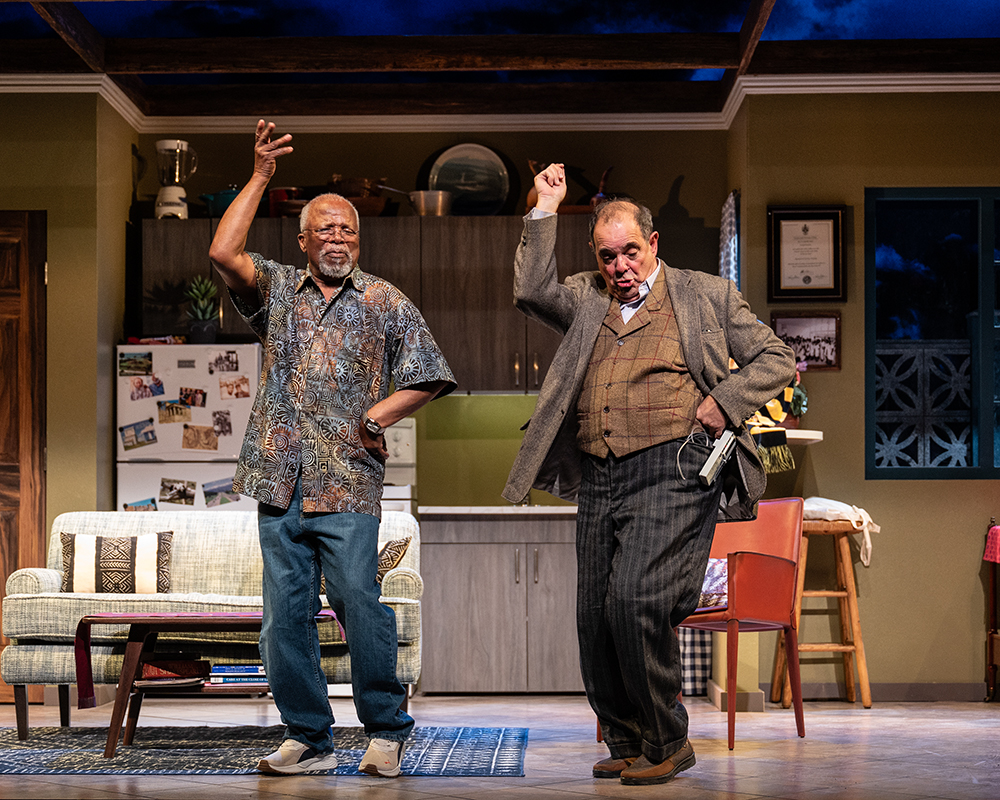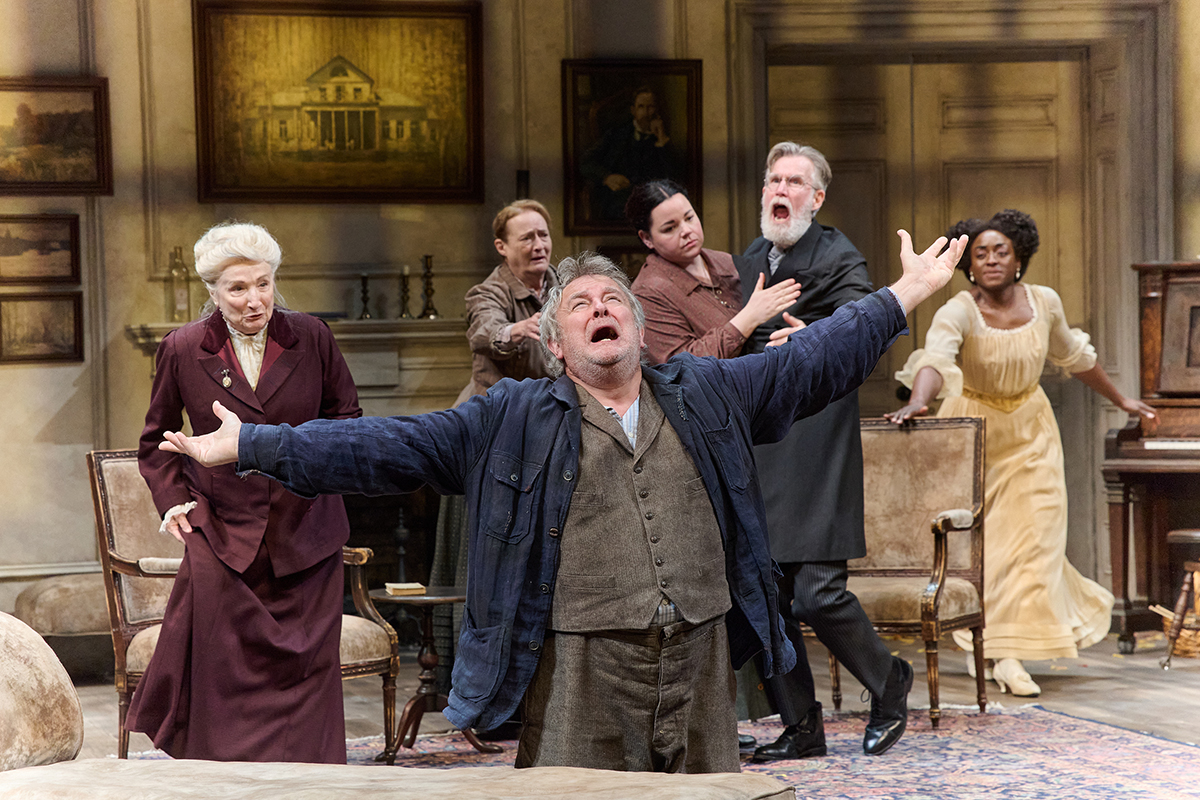A Woman Alone: 'Strange Interlude'
Shakespeare Theatre Company masterfully captures the breadth and nuance of O'Neill's story of a woman wounded and those affected by her scars
In superb counterpoint to the flamboyant Nina is the ubiquitous and resoundingly beta family friend, Charles Marsden. Drawn like a moth to Nina’s flame, it is clear that even as he longs to possess her, he would never know what to do with her – at least while she’s firing on all pistons. Yet Marsden, eagle-eyed and capable of his own brand of manipulation, emerges as a significant extension of Nina’s dead father (played with memorable effectiveness and nuance by Ted van Griethuysen) and an ever-present reminder of society’s limits and expectations.
Making the most of his tall, thin stature, Robert Stanton captures beautifully Marsden’s wry, self-loathing, utterly American ”voice”; his perfect blend of long-suffering good-humor and lurking edge.
As Nina’s love interest, Edmund Darrell, Baylen Thomas transitions interestingly from the rather cardboard-y, buttoned-down doctor who innocently advises Nina to have a child, to the quietly impassioned and finally emotionally bankrupt man who, like Marsden, orbits Nina for decades in the hopes of some kind of permanent collision. Thomas evokes convincingly and touchingly this besotted man, his longing, pining and eventual resignation fully palpable.



 and ONE HALF
and ONE HALFTo April 29
Shakespeare Theatre Company
Sidney Harman Hall
610 F St. NW
$20-$105
202-547-1122
www.shakespearetheatre.org
Completing the quadrangle is Sam Evans, who Nina marries simply as a means to an end: the elusive ”happiness.” Though Sam is a thoroughly decent man, he will never be a love match for the volatile, impassioned Nina and, though O’Neill finds a device with which to keep them together, there is a thinness to their relationship. The reality of such a marriage, even with their consuming love for their child, would be rife with a frustration that would breed far more contempt than either displays here. Ted Koch captures the well-meaning, rather oblivious, occasionally self-immolating Sam with enough nuance to make him interesting. Like Faridany with her Nina, Koch brings a certain unpredictability to his Sam, which is effective enough to make one wonder about his inner life perhaps more than O’Neill might expect.
In a small role that provides a vital dramatic bridge, Tana Hicken gives Sam’s mother, Mrs. Amos Evans, enough authenticity and emotional depth to carry her message, silly as it might look on paper, with the power it needs to change the direction of Nina’s life (again). Jake Land as Nina’s son, Gordon, as a boy; Joe Short as Gordon the young man; and Rachel Spencer Hewitt as his fiancée Madeline Arnold, acquit themselves well in their smaller roles amid the adult machinations.
Still, Strange Interlude belongs to Nina and the men (some living, some dead) who haunt her life and psyche. And this is where O’Neill endures. Here is the American playwright who has captured lives unfulfilled, the troubled soul that can control all but itself, and the fleeting but melancholy power of passionate love.
Support Metro Weekly’s Journalism
These are challenging times for news organizations. And yet it’s crucial we stay active and provide vital resources and information to both our local readers and the world. So won’t you please take a moment and consider supporting Metro Weekly with a membership? For as little as $5 a month, you can help ensure Metro Weekly magazine and MetroWeekly.com remain free, viable resources as we provide the best, most diverse, culturally-resonant LGBTQ coverage in both the D.C. region and around the world. Memberships come with exclusive perks and discounts, your own personal digital delivery of each week’s magazine (and an archive), access to our Member's Lounge when it launches this fall, and exclusive members-only items like Metro Weekly Membership Mugs and Tote Bags! Check out all our membership levels here and please join us today!





















